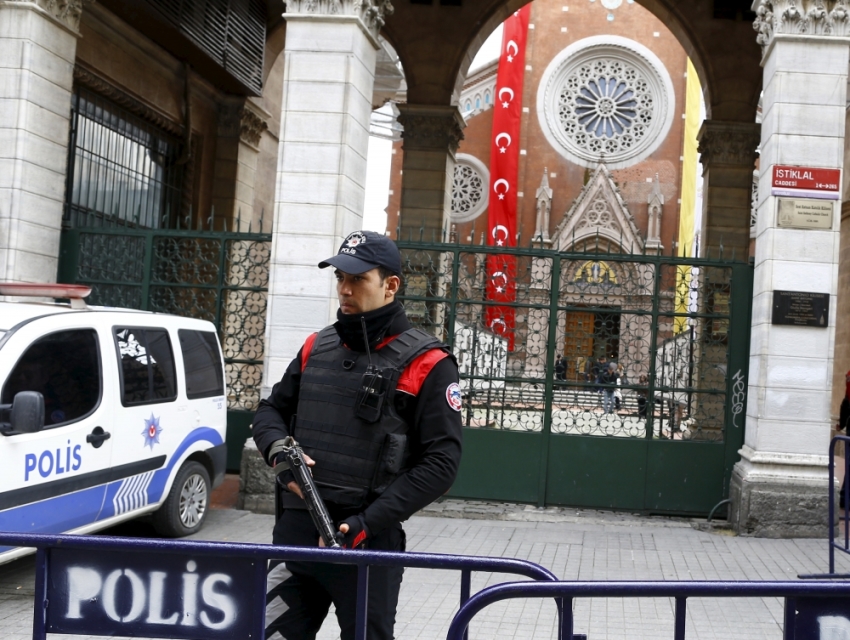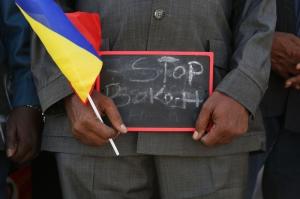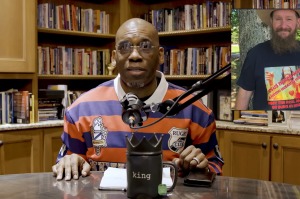Turkey forcing religious minorities to join propaganda campaigns to 'whitewash' regime's intolerance

Religious freedom advocates have warned that Turkey is embarking on a propaganda campaign of “whitewashing” its treatment of religious minorities, and urged the U.S. State Department to designate Turkey as a country of particular concern.
At the In Defense of Christians National Summit, held in Washington, D.C., on Wednesday, Aykan Erdemir, senior director of the Turkey Program at the Foundation for Defense of Democracies, discussed the latest trends concerning the persecution of ethnic and religious minorities in Turkey. He alleged that the regime of Turkish President Recep Tayyip Erdogan is forcing religious minorities to participate in a propaganda campaign designed to paint a picture of a tolerant government to the rest of the world.
“We are transitioning to an era of captured communities,” he said. “I characterize what came before as excluded communities, discriminated against communities, targeted communities, but captured communities, in my mind, represents a more advanced form of discrimination and subjugation in that these communities are not asked to be active agents in their own subjugation and accomplices in the whitewashing of the Erdogan regime’s atrocities.”
Erdemir added, “The leadership, both religious and lay leadership of Turkey’s non-Muslim communities, are now expected to be willing and able players in whitewashing the regime’s persecution and crimes.” He cited examples of the coercion religious minorities in Turkey face, including being forced to “attend ceremonies or sign statements or play props in various window dressing attempts to show that the Erdogan government is tolerant, benevolent and embracing of minorities.”
“This could simply be a letter forced on Turkey’s religious minorities where they state that there is no pressure on religious minorities in Turkey. … This could be a letter for them to express their support of Turkish cross-border military operations in Northern Syria.”
Erdemir highlighted another cause of concern for western governments and religious freedom advocates: “There is a flourishing of museums, churches and synagogues that do not serve as worship halls, as houses of worship, but as tourism spectacles, as museums that the government restores and manages and then maybe one day a year allows religious ceremonies but uses … 365 days a year to showcase the government’s tolerance and benevolence as talking points, as props, as window dressing.”
After urging the U.S. and other Western governments to “not partake in such whitewashing ceremonies at such sites and give legitimacy and credibility to the Erdogan government’s stunts,” Erdemir called on the State Department to designate Turkey as a “country of particular concern.”
The State Department assigns the CPC label to nations engaged in “severe violations of religious freedom” under the International Religious Freedom Act of 1998.
According to the State Department, the 1998 law defines “severe violations of religious freedom as systematic, ongoing, egregious violations of religious freedom, including violations such as torture, degrading treatment or punishment, prolonged detention without charges, abduction or clandestine detention, or other flagrant denial of the right to life, liberty, or the security of persons.”
Erdemir contended that Erdogan’s conversion of a revered Christian landmark, the Hagia Sophia, into a mosque merited Turkey’s designation as a CPC.
“The Erdogan government needs to end state-sponsored and sanctioned propagation of hate and conspiracies against religious minorities, which make them victims of hate crimes and hate speech and which then make even more reliant on the benevolence and the good graces of the Erdogan government for protection,” he proclaimed.
Another member of the panel, Amy Austin Holmes of the Council on Foreign Relations, explained how a Christian who remained behind to protect his family’s land while the rest of the family fled the Turkish-occupied Syrian city Ras al-Ayn was pressured to take part in a propaganda campaign.
Holmes detailed that one day, Turkish-backed militias “came to him and said that they wanted him to participate in essentially a propaganda video … to show ‘look, there’s a Christian who’s still in Ras al-Ayn’ and to make a video about it to try to convince the world that things weren’t that bad in Ras al-Ayn and there is, in fact, at least this one Christian who’s still there.”
While the man initially agreed to comply with the militia’s request and said he would do the video the following day, he ended up escaping that night rather than participate in the campaign. Holmes reported that the aforementioned situation is not a unique phenomenon.
Holmes asserted that many religious and ethnic minorities have fled the area. As they left their properties behind, “the Turkish-backed militias have appropriated their [properties] and enriched themselves from the homes that have been left empty.” She called on the U.S. to “ensure that it is possible for everyone who fled from these areas to return, to regain their property, to receive compensation for the property that was stolen or damaged.”
Describing them as “dominated subjects of a sectarian and unequal regime” and “de jure and de facto subjugated slaves or subjects,” Erdemir elaborated on the impact of religious minorities fleeing Turkey: “Turkey’s Greek Orthodox are now less than 2,000, possibly closer to 1,500, almost all above 60 years of age.”
“Turkey’s Jewish community is now below 17,000. So minorities are going extinct in Turkey.”
Ryan Foley is a reporter for The Christian Post. He can be reached at: ryan.foley@christianpost.com



























